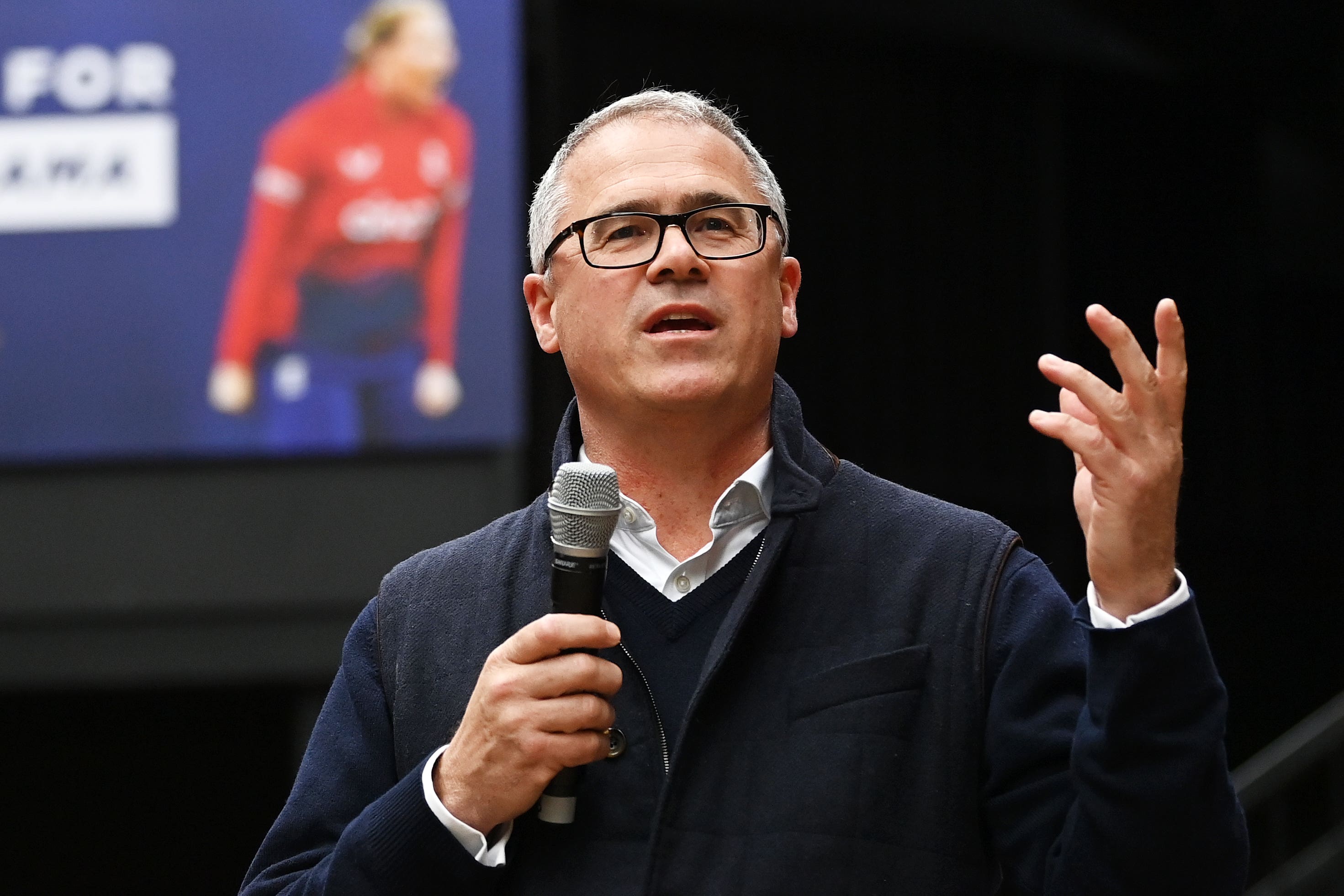Tape ball programme can help England find unorthodox talent – Richard Gould
The ECB’s new core cities programme was showcased at an event in Birmingham on Thursday.

Your support helps us to tell the story
From reproductive rights to climate change to Big Tech, The Independent is on the ground when the story is developing. Whether it's investigating the financials of Elon Musk's pro-Trump PAC or producing our latest documentary, 'The A Word', which shines a light on the American women fighting for reproductive rights, we know how important it is to parse out the facts from the messaging.
At such a critical moment in US history, we need reporters on the ground. Your donation allows us to keep sending journalists to speak to both sides of the story.
The Independent is trusted by Americans across the entire political spectrum. And unlike many other quality news outlets, we choose not to lock Americans out of our reporting and analysis with paywalls. We believe quality journalism should be available to everyone, paid for by those who can afford it.
Your support makes all the difference.The England and Wales Cricket Board hopes to unearth a new seam of talent beyond the game’s traditional league structure with a national tape ball scheme that allows players to thrive without “whites, willow and leather”.
The practice of using a soft ball wrapped in electrical tape to aid swing and variable bounce is a common one in Asia, where it has helped produce express pace bowlers like Haris Rauf, Shaheen Afridi and spinners such as Rashid Khan and Shakib-al-Hasan, but has been slow to enter the mainstream conversation in the United Kingdom.
The Chance to Shine charity has long pioneered tape ball cricket as part of its engagement hubs and now, with the ECB keen to live up to its lofty aspiration of becoming the most inclusive team sport in the country, it is at the heart of a new core cities programme designed to engage ‘diverse communities in urban areas’.
Speaking at a launch event where games were hosted in a warehouse space in Birmingham, ECB chief executive Richard Gould was optimistic about reaching out to those with an interest in cricket but limited access to the pavilions and prepared pitches in the club setup.
“We talk about clubs with picket fences around them. In the past that has been seen as the preserve of the ECB. We’ve missed a complete trick on that,” he said.
“When we talk about the recreational game we’re not just talking about Premier League clubs and village cricket clubs now. We’re talking about all forms of cricket that take place.
“You can play the game anywhere, any time, with anybody, in any environment you want. You don’t have to have whites, willow and leather to do it. You can just pick up a bat and a ball and have some fun.”
We have to get out and try to find the talent. More to the point, we have to try and find talent in areas that we haven't normally looked for it.
As well as fulfilling its remit of reaching out to all comers at a grassroots level, Gould also believes there are benefits to finding cricketers with different styles who have learned the game outside the traditional, private-school heavy pathways.
“Without doubt there are,” he said. “We have to get out and try to find the talent. More to the point, we have to try and find talent in areas that we haven’t normally looked for it.
“I do think county pathways will be looking to make sure they don’t miss out on this talent. It’s just about punching through all of our normal procedures and finding ways to both get people in the game and unearthing that talent which may be unorthodox and great.”